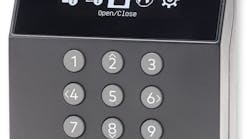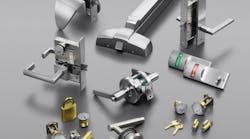July 01 -- Never let a locksmith drill a door lock, consumer advocates warn: If a locksmith you've called for help suggests drilling the lock, it's a good sign that you're being scammed.
"Here's the thing -- most locksmiths can pick locks," said Sid Kirchheimer, an AARP Bulletin columnist who has widely researched scams that victimize the elderly. "While there are some cases where locks must be drilled, those are few and far between. It tends to be a giveaway that they're setting you up for a scam."
An industry trade group, Associated Locksmiths of America, which requires its members to undergo background checks, says the incidence of locksmith scam cases is up across the country.
Locally, numbers are small but growing. Statistics compiled by the Better Business Bureau of Northeast California show that the number of complaints filed against locksmiths has risen from six in 2010 to 10 this year -- not an enormous number but still a sign that fraudulent activity is increasing.
The bureau has answered 1,042 inquiries about local locksmiths this year, said spokeswoman Cailin Peterson.
Elderly people are frequent targets for the scam.
"People providing services for people in their homes really need to be checked out," said Heidi Richardson, a program specialist with Sacramento County Adult Protective Services, which investigates fraud against older adults.
Unfortunately for consumers, it's an easy scam to perpetrate. The scam typically involves the use of websites listing toll-free numbers. When consumers call, locked out of their homes, the call center generally doesn't give a business name. The fraudulent locksmith arrives not in a van marked with a company's logo and business information but in a car.
If it's a fraud, the locksmith likely demands payment in cash. And the price quoted over the phone -- as little as $10 or $15, said Kirchheimer -- rises immediately and adds up quickly.
"If they say on the phone it will cost $15, it's a scam," he said. "They low-ball the price, and when they get to the house, the costs start adding up. The guy says he has to drill the lock, and it ends up costing $1,400."
Compare that to the $150 or so that reputable locksmiths charge to pick a lock.
Experts suggest that consumers do their research ahead of time: Ask friends and family members for recommendations. Or drive to the address listed in the online listing to make sure it's actually the locksmith's office, not an unrelated business or an empty lot.
When the locksmith shows up, ask to see his or her identification and contractor's license.
"People should do that with anyone who comes to their home," said Richardson. "This type of profession is licensed."
Consumer advocates also suggest getting a written estimate before the locksmith begins work.
"There's a lot of hardworking, honest guys out there," said Kirchheimer. "This scam gives their industry a bad name."
Call The Bee's Anita Creamer, (916) 321-1136.
Copyright 2012 - The Sacramento Bee, Calif.





